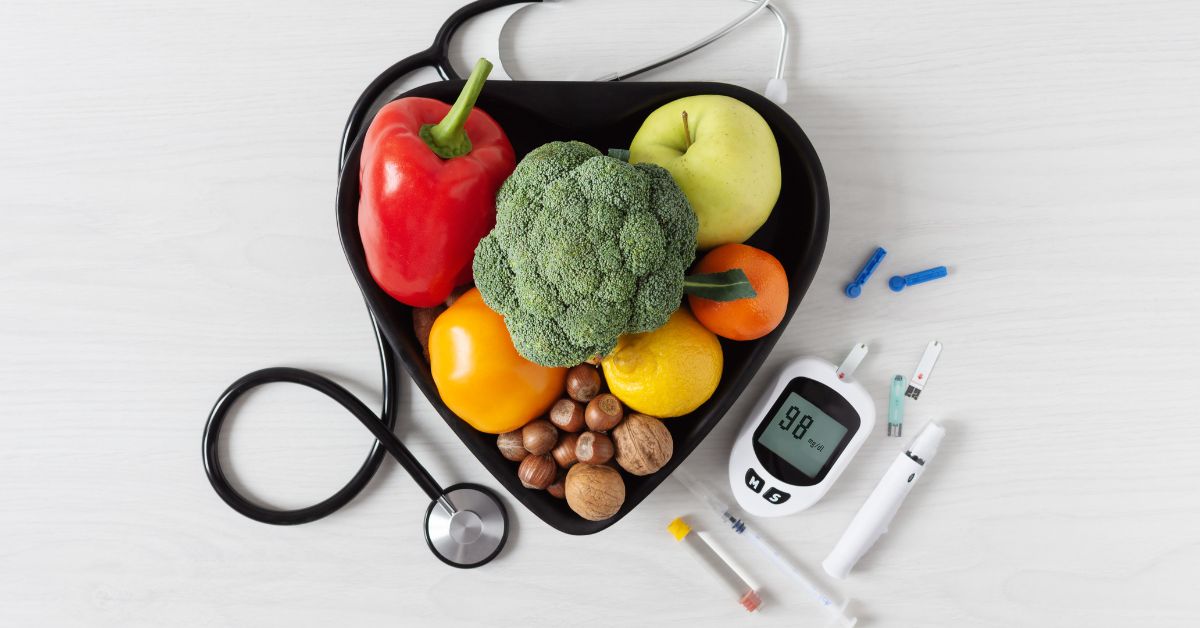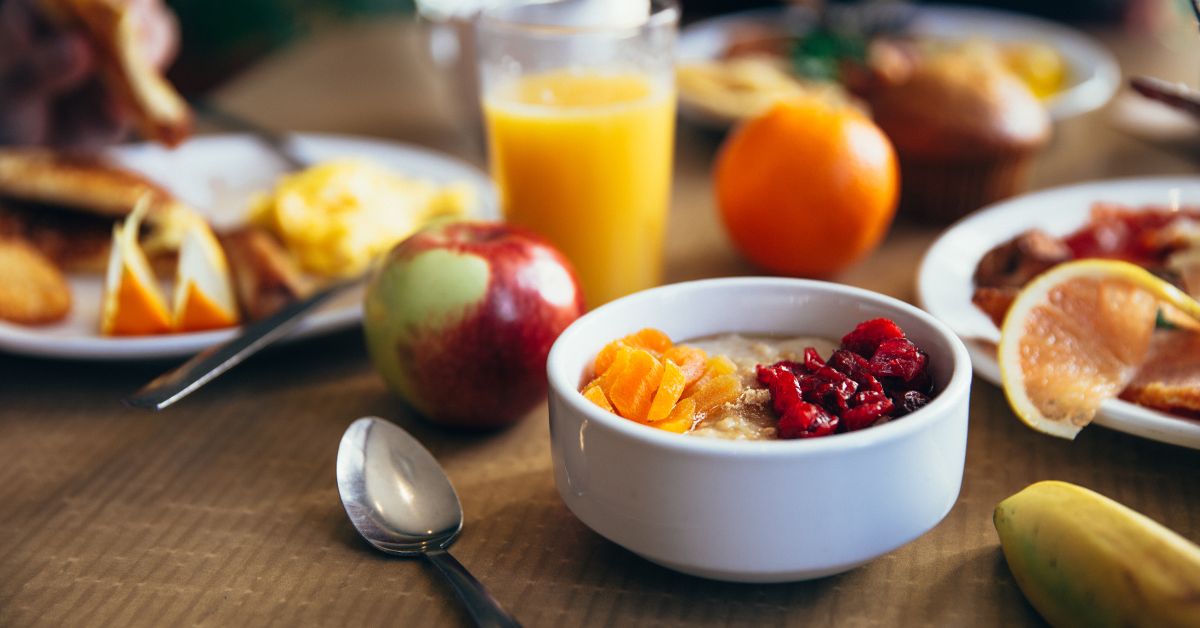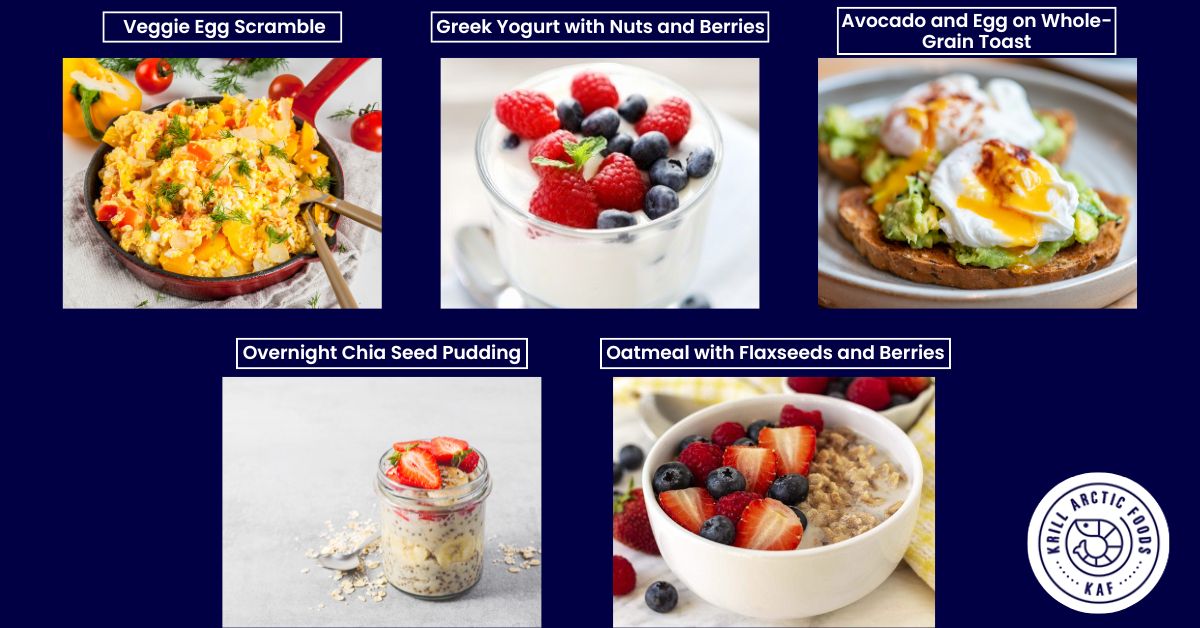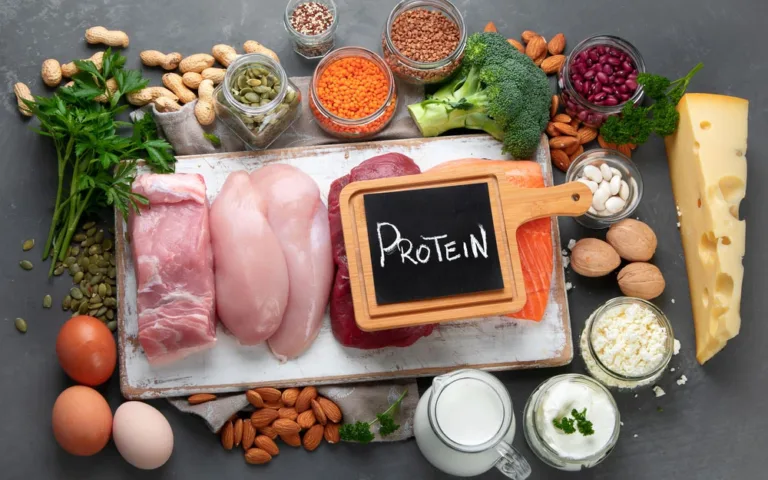Imagine it’s early morning, and you’re trying to figure out what to have for breakfast. You know it’s important to eat something healthy, but managing diabetes can make that decision even more complicated. Should you grab something quick or opt for a more balanced meal? The challenge is finding something both convenient and nourishing.
For the 37 million Americans living with diabetes, a healthy breakfast is essential to keeping blood sugar levels stable throughout the day. The right combination of foods can give you energy without causing blood sugar spikes.
In this article, we’ll dive into some easy, nutritious breakfast options specifically designed for diabetics. You’ll learn how to balance your meals, control portions, and discover a few simple recipes that can make your mornings smoother and healthier.
Let’s make starting your day with a diabetic-friendly breakfast easy and enjoyable!
Understanding Diabetics
Diabetes is a condition that affects how your body processes blood sugar (glucose). Glucose is the primary energy source for your cells, but in diabetics, the body either doesn’t produce enough insulin (the hormone that regulates glucose) or doesn’t use it effectively. This leads to elevated blood sugar levels, which can cause serious health issues over time.
Here’s a quick breakdown of the types of diabetes:
- Type 1 Diabetes: The body’s immune system attacks insulin-producing cells in the pancreas, leading to little or no insulin production. People with Type 1 need to take insulin to manage their blood sugar levels.
- Type 2 Diabetes: The most common type, where the body either becomes resistant to insulin or doesn’t produce enough. It’s often linked to lifestyle factors like diet, weight, and inactivity.
Why a Good Breakfast Matters for Diabetics
For people with diabetes, breakfast plays a crucial role in managing blood sugar levels and maintaining overall health. After a night of fasting, your body needs fuel to stabilize glucose levels, and the right breakfast can make a significant difference in how your blood sugar behaves throughout the day.
Here’s why a good breakfast is essential for diabetics:
- Prevents Blood Sugar Spikes and Crashes
Skipping breakfast or eating foods high in refined sugars can cause your blood sugar to spike quickly and then crash. This can leave you feeling sluggish and make it harder to manage your glucose levels. A well-balanced breakfast, rich in protein, fiber, and healthy fats, helps keep your blood sugar stable. - Provides Sustained Energy
Eating a nutritious breakfast gives you lasting energy for the morning. Without it, you may feel tired or experience sugar cravings, which can lead to poor food choices later in the day. A balanced breakfast helps regulate hunger and boosts your metabolism, giving you steady energy without the ups and downs. - Improves Insulin Sensitivity
Starting the day with a meal that’s high in protein and fiber improves insulin sensitivity. This means your body can process glucose more efficiently, helping to prevent blood sugar spikes. Foods like eggs, oats, or Greek yogurt can set the stage for better insulin management throughout the day. - Supports Healthy Weight Management
For diabetics, maintaining a healthy weight is important for controlling blood sugar levels. A good breakfast helps curb overeating later in the day and supports weight management by keeping you full longer. It reduces the temptation to snack on unhealthy foods.
In short, breakfast is not just a routine meal for diabetics—it’s a key step in maintaining balanced blood sugar, boosting energy, and supporting long-term health.
Key Elements of a Diabetic-Friendly Breakfast
1. Balanced Macronutrients:
Think of your breakfast like building a house. You need a solid foundation of protein, healthy fats, and fiber to keep blood sugar steady. Protein from eggs, yogurt, or tofu helps slow digestion, while healthy fats like avocado or nuts keep you full longer.
Fiber, found in whole grains or veggies, slows sugar absorption, preventing spikes. This trio keeps you fueled and balanced throughout the morning.
2. Low Glycemic Index (GI) Foods:
Avoid the blood sugar rollercoaster by choosing low-GI foods like oatmeal, berries, and whole grain toast. These foods digest slowly, providing steady energy without causing sharp blood sugar spikes. Think of low-GI options as a slow, steady burn—reliable and stress-free for your body.
3. Portion Control:
Even healthy foods can cause problems if eaten in excess. Managing portions helps keep your blood sugar stable. Stick to reasonable servings—like one slice of whole-grain toast or a small handful of berries. It’s like fueling your car: enough to keep you going, but not so much that it overwhelms your system.
4. Timing Matters:
When it comes to blood sugar control, when you eat is just as important as what you eat. Aim to eat breakfast within an hour or two of waking up. This helps to break your overnight fast and gives your body the fuel it needs to keep blood sugar steady after a long period of not eating. Skipping breakfast, on the other hand, can lead to higher blood sugar levels later in the day, as your body overcompensates when you finally eat.
5. Hydration is Key:
Don’t forget that what you drink also matters. Sugary drinks like fruit juices or sweetened coffee can quickly spike blood sugar levels. Instead, opt for water, unsweetened tea, or coffee without added sugars. Starting your day with a glass of water helps your body process food more efficiently and keeps you hydrated, which is essential for overall health, especially for diabetics.
By focusing on balanced macronutrients, low-GI foods, portion control, timing, and hydration, you’re not just eating for today—you’re setting yourself up for steady blood sugar levels throughout the day. This keeps you energized, reduces the risk of sudden blood sugar drops or spikes, and helps you stay in control of your diabetes.
A mindful approach to breakfast allows diabetics to start the day right, avoiding the stress of blood sugar fluctuations while still enjoying tasty and satisfying meals.
Simple and Quick Breakfast Recipes for Diabetics
Starting the day with a balanced breakfast is essential for managing blood sugar, especially for diabetics. A good breakfast should include a mix of protein, fiber, and healthy fats to stabilize blood sugar and provide lasting energy. These quick and simple breakfast recipes are designed to help diabetics keep their blood glucose levels in check while still enjoying delicious, nutritious meals.
1. Veggie Egg Scramble
- Ingredients:
- 2 large eggs
- 1/4 cup chopped spinach
- 1/4 cup diced tomatoes
- 1/4 cup diced bell peppers
- 1 tsp olive oil
- Salt and pepper to taste
- Instructions:
Heat olive oil in a pan over medium heat. Add the chopped vegetables and sauté for 2-3 minutes. Whisk the eggs, season with salt and pepper, and pour over the veggies. Stir until fully cooked. - Why It’s Good for Diabetics:
Eggs are an excellent source of protein, which helps stabilize blood sugar levels. The addition of fiber-rich vegetables like spinach and bell peppers slows down the absorption of sugar into the bloodstream, preventing spikes. This meal is low in carbs but high in nutrients.
2. Greek Yogurt with Nuts and Berries
- Ingredients:
- 1 cup plain, unsweetened Greek yogurt
- 1/4 cup fresh mixed berries (blueberries, raspberries, strawberries)
- 1 tbsp chopped almonds or walnuts
- A pinch of cinnamon
- Instructions:
Combine the yogurt, berries, and nuts in a bowl. Sprinkle with cinnamon. - Why It’s Good for Diabetics:
Greek yogurt is rich in protein and low in sugar, helping to keep blood sugar stable. Berries provide antioxidants and are lower in sugar than most fruits, making them suitable for diabetics. Nuts add healthy fats, which help improve insulin sensitivity and slow sugar absorption.
3. Avocado and Egg on Whole-Grain Toast
- Ingredients:
- 1 slice whole-grain bread
- 1/2 ripe avocado
- 1 hard-boiled egg
- Salt, pepper, and chili flakes (optional)
- Instructions:
Toast the bread, mash the avocado with seasoning, and spread it on the toast. Top with sliced boiled egg. - Why It’s Good for Diabetics:
Avocados are packed with heart-healthy fats that help keep blood sugar steady. Whole-grain bread contains complex carbs that digest slowly, avoiding spikes in blood sugar. Eggs provide additional protein, making this a well-rounded, diabetic-friendly breakfast.
4. Overnight Chia Seed Pudding
- Ingredients:
- 2 tbsp chia seeds
- 1/2 cup unsweetened almond milk
- 1 tsp vanilla extract
- 1/4 cup fresh berries for topping
- Instructions:
Combine chia seeds, almond milk, and vanilla in a jar. Refrigerate overnight. Top with berries before serving. - Why It’s Good for Diabetics:
Chia seeds are rich in fiber and omega-3 fatty acids, both of which help regulate blood sugar levels. The high fiber content slows down digestion, reducing the risk of blood sugar spikes. Almond milk and berries keep the carb content low while providing a satisfying, nutrient-dense meal.
5. Oatmeal with Flaxseeds and Berries
- Ingredients:
- 1/2 cup rolled oats
- 1 cup water or unsweetened almond milk
- 1 tbsp ground flaxseeds
- 1/4 cup fresh or frozen berries
- A sprinkle of cinnamon
- Instructions:
Cook oats in water or almond milk. Stir in flaxseeds and top with berries and cinnamon. - Why It’s Good for Diabetics:
Oats are a slow-digesting carbohydrate, which helps control blood sugar levels by preventing rapid spikes. Flaxseeds add fiber and healthy fats that improve insulin sensitivity. Berries and cinnamon are low in sugar but rich in antioxidants, making this a filling and diabetic-friendly breakfast.
Each of these recipes offers a balanced mix of protein, fiber, and healthy fats, which are essential for keeping blood sugar stable throughout the morning. These breakfasts are not only nutritious but also easy to prepare and satisfying!
Common Breakfast Mistakes for Diabetics to Avoid
For diabetics, making the right breakfast choices is crucial for managing blood sugar throughout the day. However, common mistakes like consuming too many carbs, skipping protein, or opting for sugary options can lead to blood sugar spikes and crashes. Avoiding these pitfalls can help maintain steady energy levels and better glucose control.
- Skipping Breakfast: Not eating breakfast can cause blood sugar levels to drop too low, leading to overeating later and unstable glucose levels throughout the day.
- Choosing Sugary Cereals: Many cereals are high in sugar and low in fiber, causing blood sugar spikes. Opt for whole-grain, low-sugar alternatives instead.
- Relying on Processed Foods: Items like pastries, white bread, and packaged breakfast bars are often high in refined carbs, which can rapidly raise blood sugar.
- Lack of Protein: Protein helps stabilize blood sugar. Skipping protein in the morning can lead to spikes and crashes. Include eggs, Greek yogurt, or nuts.
- Overeating Fruit: While fruit is healthy, consuming too much high-sugar fruit (like bananas or grapes) without balancing it with protein or fat can cause a glucose surge. Opt for berries or pair fruit with protein.
Tips for Building a Sustainable Breakfast Routine
Creating a sustainable breakfast routine is essential for managing blood sugar levels, particularly for diabetics. Focusing on consistency and balanced meals can make a big difference in maintaining energy and glucose control. Here are some key tips to help build a healthy breakfast routine:
- Plan and Prep Ahead: Set aside time the night before to prepare a healthy breakfast, like overnight oats or pre-boiled eggs, ensuring you avoid rushed, unhealthy choices in the morning.
- Focus on Protein and Fiber: Make sure your breakfast includes protein (like eggs, Greek yogurt, or nuts) and fiber (from whole grains, fruits, or vegetables). These nutrients help regulate blood sugar and keep you feeling full longer.
- Choose Whole, Unprocessed Foods: Opt for whole foods like oats, lean proteins, and fresh veggies or fruit. They provide a slower release of energy, helping maintain steady blood sugar levels throughout the morning.
- Control Portion Sizes: Avoid oversized portions to prevent overeating, which can cause blood sugar spikes. Stick to moderate servings that balance carbs, protein, and fats.
- Establish a Routine: Try to eat breakfast at the same time each day to help regulate your body’s metabolism and maintain consistent blood sugar levels.
Conclusion
A healthy breakfast sets the tone for your day, especially if you’re managing diabetes. Starting with balanced, nutritious choices helps keep your blood sugar stable and your energy levels steady. It’s not just about picking any healthy meal—it’s about finding what works best for you.
Experiment with different recipes, like a veggie egg scramble or overnight chia pudding, and see how they affect your blood sugar. Small, manageable changes—like a balanced breakfast—can have a big impact over time. Remember, each step you take toward better blood sugar control brings you closer to a healthier, more energized day. You’ve got this!
FAQs
Why is breakfast important for people with diabetes?
Breakfast is crucial for diabetics because it helps stabilize blood sugar levels after a night of fasting. A balanced meal can prevent blood sugar spikes and crashes, giving you steady energy throughout the day.
What are some quick, easy breakfast options for diabetics?
Some easy breakfast ideas include veggie egg scrambles, overnight chia pudding, whole grain avocado toast, and Greek yogurt parfaits. These meals are low in carbs, high in fiber, and provide balanced nutrition to keep blood sugar levels stable.
Can I eat fruit for breakfast if I have diabetes?
Yes, but in moderation. Low-sugar fruits like berries, apples, or pears are good choices, but portion control is key to preventing blood sugar spikes. Stick to small servings and pair them with protein or healthy fats.
How can I prevent blood sugar spikes after breakfast?
To prevent blood sugar spikes, focus on balanced meals with protein, fiber, and healthy fats. Avoid high-sugar cereals or pastries, and keep portion sizes in check. Including low-GI foods also helps regulate blood sugar levels.
What should I avoid eating for breakfast if I have diabetes?
It’s best to avoid high-sugar cereals, pastries, or carb-heavy foods like pancakes or bagels without enough protein or fiber. These foods can cause rapid blood sugar spikes and crashes.










